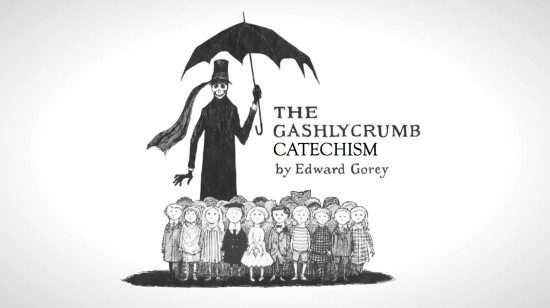Temple Grandin was on NPR's "Fresh Air" last week.
Grandin, a professor at Colorado State, looks at the world with a different perspective than I do. I don't mean that figuratively. Grandin, who was diagnosed as autistic in 1950, really does see and experience the world differently than neurotypicals like myself.
As she and radio host Terry Gross discussed her latest book, Animals Make Us Human (co-written with Catherine Johnson), they touched on the subject of animals exhibiting compulsive, repetitive behaviors — what Grandin called stereotypy. Figuring out what animals are thinking or feeling and how to address their concerns is kind of Grandin's thing.
In the example of pet gerbils compulsively digging, digging, digging in the corners of their aquariums, Dr. Grandin said that the gerbils are motivated by fear:
Grandin also discussed another case of compulsive animal behavior — a polar bear named Gus who had taken to pacing back and forth in his zoo habitat. Gus' behavior, Grandin said, was motivated by "seeking." Being both very intelligent and a predator, Gus was simply going out of his mind with boredom.
That term "seeking" was new to me in this context. Dr. Grandin explained that she was using the terminology of Panksepp's core emotions — fear, rage, separation anxiety and seeking.
Those of you who majored in psychology or in veterinary science probably already knew all about Jaak Panksepp's framework of core animal emotions, but this was new to me and it got me to thinking.
It got me to thinking, actually, about the 2008 presidential campaign. And also about why missionaries for unbelief like Richard Dawkins fail to be persuasive.
Let me take those one at a time.
Panksepp's categories seem to me to provide a convenient, and insightful, shorthand for the contrast between the campaigns of Democratic presidential candidate Barack Obama and Republican vice-presidential candidate Sarah Palin. As in every campaign, both of those candidates touched on a wide variety of themes and topics and expressed a host of moods, tones and characteristics, but it's still possible to summarize the overall gist of both. In Panskepp and Grandin's terms: Obama appealed to seeking; Palin appealed to fear.
I regard this as yet one more reason to be happy and relieved that Obama won.
I also think that this insight of Panskepp by-way-of Grandin suggests a way of reaching — of persuading and perhaps even converting — those Palin supporters we spent the late summer watching at those rallies and in all of those disturbing YouTube videos. What I'm trying to say here is a bit tricky, because it involves to some extent comparing those Palin supporters to Grandin's neurotic gerbils, and I don't suppose anyone likes being compared to neurotic gerbils. And it probably doesn't help that I'm prefacing this by saying that I mean no offense in comparing them to neurotic gerbils. But I find the comparison illustrative, so here goes.
The core of Palin's campaign was an appeal to fear. Her supporters found this appeal appealing because they were afraid. But I don't think that they started out afraid of the same things that Palin wanted them to be afraid of — immigrants and gays and commies and black people and Islamofascists and babykillers. I think they started out with more reasonable fears of things that really threatened their lives and livelihoods. It makes sense to be afraid if your life lacks security — if you're one paycheck or one illness away from losing your home, if the rules aren't clear and they're constantly changing and seem to be stacked against you, if you're barely treading water and you're not sure how much longer you can keep it up. Faced with that kind of insecurity, that kind of exposure to chance and risk and catastrophe, it makes sense to long for cover. Palin offered her supporters the illusion of cover — like the fake tunnel that reassures the neurotic gerbil. That offer was attractive, but it ultimately doesn't help them. It can't really make them unafraid.
More essentially, the core audience at Palin's rallies seemed to be made up of people who had come to regard themselves as a prey species of animal. These are people, that is to say, who have come to feel that they are not in charge of their own lives or their own fates — that they're acted on more than they are free to act.
That suggests two strategies for reaching out to them and helping them. First, per Dr. Grandin, we have to find ways to make them feel more secure and less exposed. We need to respond to the fear they're exhibiting by providing cover, providing shelter. That's the prescription for a prey species of animal. But of course these people are not a prey species of animal, not really, and thus we have the second, necessary strategy for reaching out to these folks: Convincing them that they're not at the bottom of the food chain. To fully convince them of that requires us to ensure that no one is treated as prey. That means restraining would-be predators and offering everyone substantial protections and not just fake tunnels or the sham security of scapegoating.
Building a society in which no one is treated as prey is a noble goal, but not an easy one. The good news here, as the Obama campaign illustrated, is that we humans also have this core emotion of seeking. We want to be called to work for noble goals, especially when they're not easily achieved.
The examples of the gerbil and the polar bear also help to illustrate why the enthusiastic arguments of the popular atheist proselytizers haven't succeeded at much more than preaching to the choir.
According to these Dawkins- and Hitchens-style arguments, religious belief of any kind — belief in anything transcendent and unprovable — is akin to the stereotypy displayed by a neurotic gerbil. As we've already noted, no one likes to be compared to a neurotic gerbil, so this is perhaps not the most winsome starting point for these arguments, but let that pass. Their diagnosis is that religious belief arises from a core emotion of fear — fear of death, fear of the unknown, fear that the universe might be an unjust and meaningless place.
The first problem with this diagnosis is that these arguments don't follow through on it. They're not providing a prescription to match their diagnosis. It does little good to argue that religious believers are responding to a core emotion of fear unless you're also willing to address that fear. Once you realize that the gerbil is digging and clawing at the bottom of the aquarium because of fear then you need to address that fear. Put the cardboard tube from a paper towel roll in there and the digging will stop.
But the larger problem with this diagnosis is that, again, human beings are much more like polar bears than we are like gerbils. We're motivated more by seeking than by fear. So I think, fundamentally, these missionaries misunderstand the belief they're criticizing and they've misattributed the core emotion involved.
I'm sure that there are some believers and some forms of religious belief — particularly those unsatisfying, white-knuckled varieties — that are in large part motivated by fear. But not all forms or all believers. And not most. And never entirely. Religious belief —
the pursuit of the transcendent and unprovable — is motivated by
seeking.
That being the case, critics of belief in the transcendent would do well to stop talking about believers' supposed fears and being engaging our approach to seeking. To disabuse us of belief in the transcendent, you will need to convince us that we are seeking the wrong thing or that we are seeking in the wrong place.
Just don't try to convince us to give up on seeking entirely. Humans can't do that. As with polar bears, it's part of our nature.
My advice to the Dawkinses and Hitchenses would be to stick to those questions that we religious types have no good answers for. Ask me about the problem of evil. Or consider that I believe that life is meaningful and that, as Dr. King said, "the arc of the universe is long but it bends toward justice." It isn't really difficult to collect piles of counter-evidence for either of those claims.
















